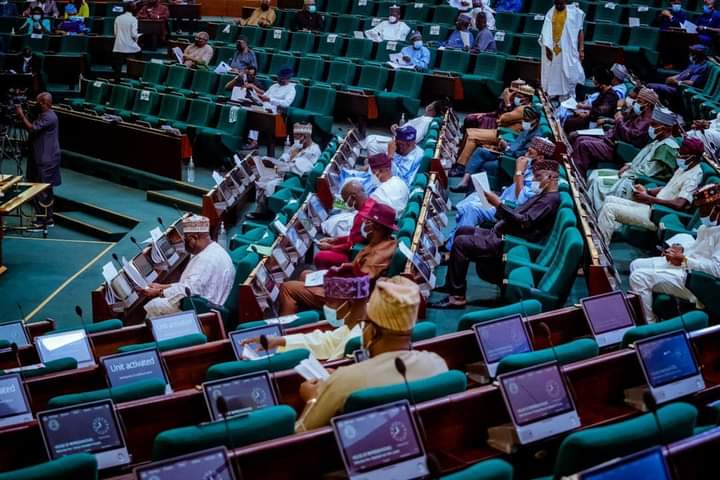The House of Representatives ad hoc committee investigating the National Hajj Commission of Nigeria (NAHCON) has uncovered several serious infractions related to the 2024 Hajj operation. Chaired by Sada Soli, the committee’s findings have sparked calls for reforms to address key challenges faced by Nigerian pilgrims.
The investigation was initiated following a motion sponsored by Omar Bio, representing Buruten/Kaima Federal Constituency in Kwara State.
The probe comes in the wake of the Federal Government’s provision of a N90 billion subsidy for the 2024 Hajj, a move that sparked public controversy due to the ongoing economic challenges facing the country, particularly after the removal of the fuel subsidy.
Critics argued that the subsidy should have been directed towards more pressing national issues instead of a religious exercise.
Despite the federal intervention, several states expressed dissatisfaction with NAHCON’s handling of the operation, particularly with accommodation issues in Muna, overcrowded tents in Mina and Arafat, and the inadequate Basic Travel Allowance (BTA) for pilgrims.
In response to mounting pressure, President Bola Tinubu relieved NAHCON Chairman, Jalal Arabi, of his duties in August 2024, replacing him with Abdullahi Usman. The decision followed an indictment by the Economic and Financial Crimes Commission (EFCC) over an alleged multi-million-dollar fraud scheme involving Arabi and the commission’s secretary, Abdullahi Kontagora.
The ad hoc committee’s report, outlined multiple deficiencies within NAHCON’s operations. Key issues included financial mismanagement, logistical failures, and a lack of transparency.
One of the most significant complaints was the poor quality of accommodation provided for pilgrims, with overcrowding in VIP tents and substandard living conditions, particularly in Mina and Arafat.
High-profile pilgrims, including governors and traditional rulers, were affected by the overcrowding, which was worsened by a policy change in Saudi Arabia that barred upgrades on the e-track platform.
The report also revealed serious communication breakdowns between NAHCON and licensed tour operators, leading to mutual distrust and service failures. Discrepancies in fee structures, with inconsistencies in charges for state-sponsored and private pilgrims, further complicated the situation. Tour operators expressed frustration at being excluded from key decision-making processes, exacerbating tensions.
Financial mismanagement was a recurring theme. Pilgrims paid up to N9 million each for the Hajj, yet there was no clear breakdown of the fees. The subsidy was not transparently distributed, with some pilgrims receiving benefits while others did not.
Additionally, NAHCON transferred the entire subsidy amount into offshore accounts in Saudi Arabia without a clear tracking mechanism, raising concerns about the proper utilization of the funds.
The committee’s report also addressed issues in the aviation sector, particularly Nigeria’s Bilateral Air Agreement with Saudi Arabia, which mandates that a Saudi airline airlift 50% of Nigerian pilgrims.
This arrangement was criticized for potentially disadvantaging Nigerian airlines, and the committee recommended that the Nigerian Civil Aviation Authority and the Aviation Ministry clarify the terms to protect local airlines.
Among the committee’s key recommendations were:
- A detailed breakdown of Hajj fees to ensure transparency and justify charges.
- A review of the Personal Travel Allowance (PTA) system, including an upward review of the $500 PTA.
- Independent audits of NAHCON’s financial records to address mismanagement.
- Stricter penalties for service providers failing to meet contractual obligations.
- The establishment of an independent complaints resolution mechanism for pilgrims and a Hajj Tribunal to resolve disputes.
Additionally, the report highlighted a lack of coordination between NAHCON and state pilgrims’ welfare boards, resulting in varying levels of service quality across states.
Accommodation, transportation, and logistical challenges were widespread, with elderly pilgrims particularly affected by delays and overcrowding.
NAHCON’s spokesperson, Fatima Usara, denied knowledge of the commission’s indictment.
In an interview, she stated, “What I read on the pages of newspapers are resolutions and recommendations for further action. Personally, I am yet to see the full report so I cannot ascertain your claims. However, NAHCON has always reiterated its readiness to continue working on improving Hajj operations for Nigerian pilgrims and will continue to work closely with relevant stakeholders.”
RELATED NEWS: Reps donates N705m to support vulnerable Nigerians during ramadan

